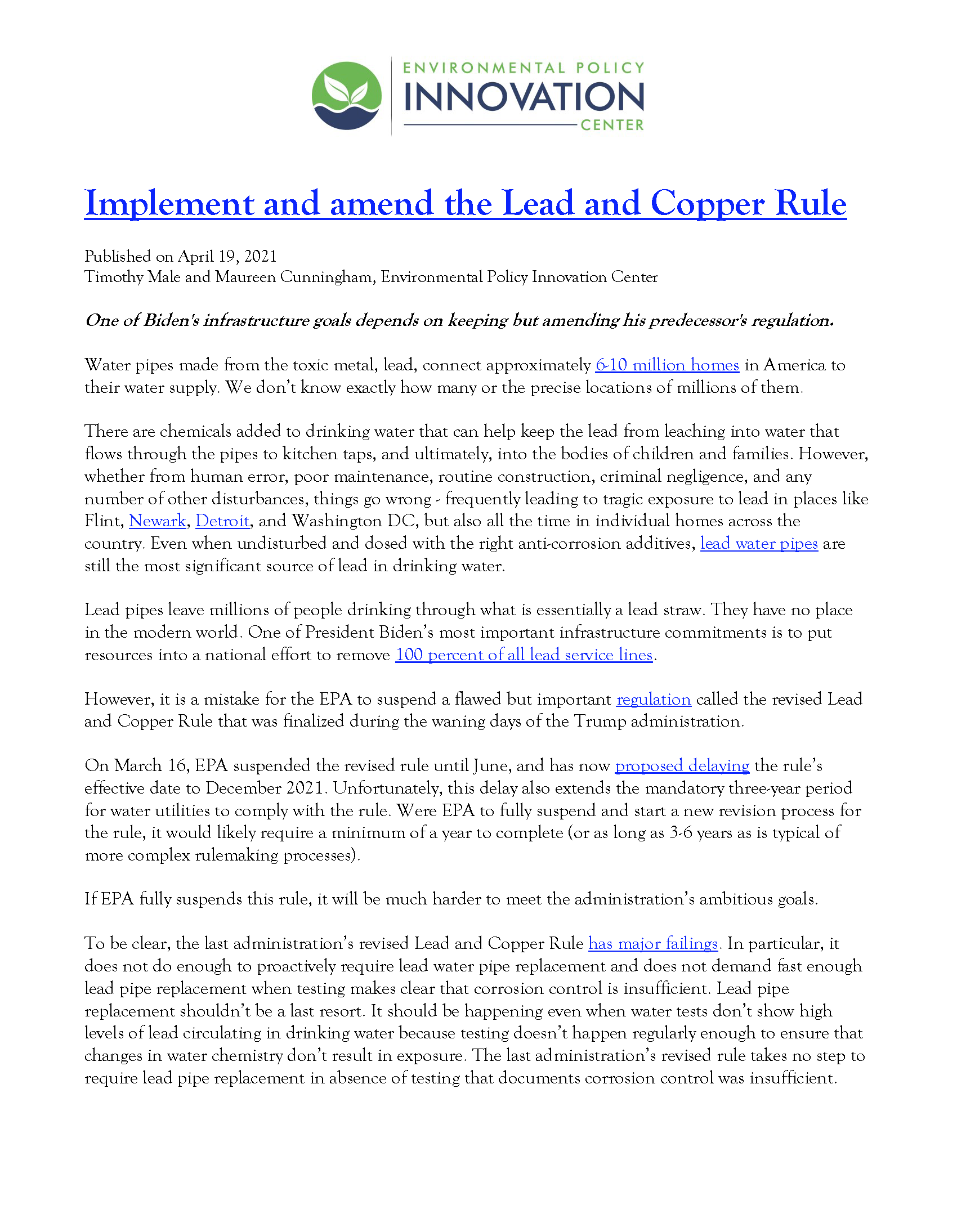Earlier this year, Gabe Watson and EmmaLi Tsai participated in a workshop hosted by Defenders of Wildlife to help researchers create better maps at the intersection of environmental justice and conservation. Decisions from the workshop resulted in this user guide & website, which walks users through a more collaborate and inclusive approach to conservation that considers biodiversity, climate change, and environmental justice. To put the framework and shared principles into practice, the guide also features a case study using the National Wildlife Refuge System to show where future land acquisition should be prioritized.
At the Environmental Policy Innovation Center (EPIC), our goal is to advance ecological restoration at scale, yet permitting costs consume up to ⅓ of project budgets. We need money to go to nature, not paperwork. Over the past two years, EPIC has quantitatively and qualitatively analyzed policies and processes related to restoration project permitting. Here we provide a case study of adoption of e-permitting technology that ameliorated many permitting bottlenecks.
Tim Male, Executive Director of EPIC, co-wrote an article in Ecosystem Marketplace with Mariana Sarmiento and Charles Bedford on how to close the biodiversity finance gap.
How could Maryland legislators build a sandbox for nature to accelerate restoration?
The US Department of Agriculture has contracted at least seven RCPP projects that used performance-based payments to buy environmental outcomes. This report profiles their challenges and successes.
Sand County Foundation and the Environmental Policy Innovation Center evaluate the successes, challenges, and immediate opportunities for watershed partnerships in the Midwest.
A report on the progress of nine Iowa cities that have signed memoranda of understanding with the state Department of Natural Resources to establish watershed partnerships.
This report describes how to proliferate connections between point and nonpoint sources of nutrients to meet permit requirements and improve water quality.

A Technical Advisory Toolkit for Lead Service Lines

Stretching the Dollar to Get the Lead Out: Good Decision-Making and Planning for Lead Service Line Cost Efficiencies

Stretching the Dollar to Get the Lead Out: Advancing Lead Service Line Programs with Low or No-Cost Policies and Practices

Increasing the efficiency of land transactions

Water Systems in Southeastern Pennsylvania Face Challenges in Accessing Public Funds for Infrastructure

From the ground up: A guide to replacing the nation’s toxic lead pipes over the next decade

Best Practices: How to Replace Lead Pipes Quickly, Efficiently, and Equitably Over the Next Decade

Menu of Options: Data and Technology To Replace Lead Pipes Faster

Tap into Innovation to Replace Lead Pipes

Lead in Water Harms Red States, Too

EPIC supports principles for Lead Service Line Replacements
Under the leadership of NRDC and other advocates, EPIC has signed on in agreement with principles to make lead service line replacement more equitable, efficient, and protective of health.

Replacing Toxic Lead Pipes Faster: Innovative Procurement and Financing Approaches Are Just as Important as Federal Funding
This report explores some key questions: How do we ensure lead pipe replacement happens faster, so people no longer have to drink water contaminated by lead? What efficiencies can we put in place that have been proven to be effective in other spheres? How do we encourage other innovations that can also help speed up lead pipe replacement?


